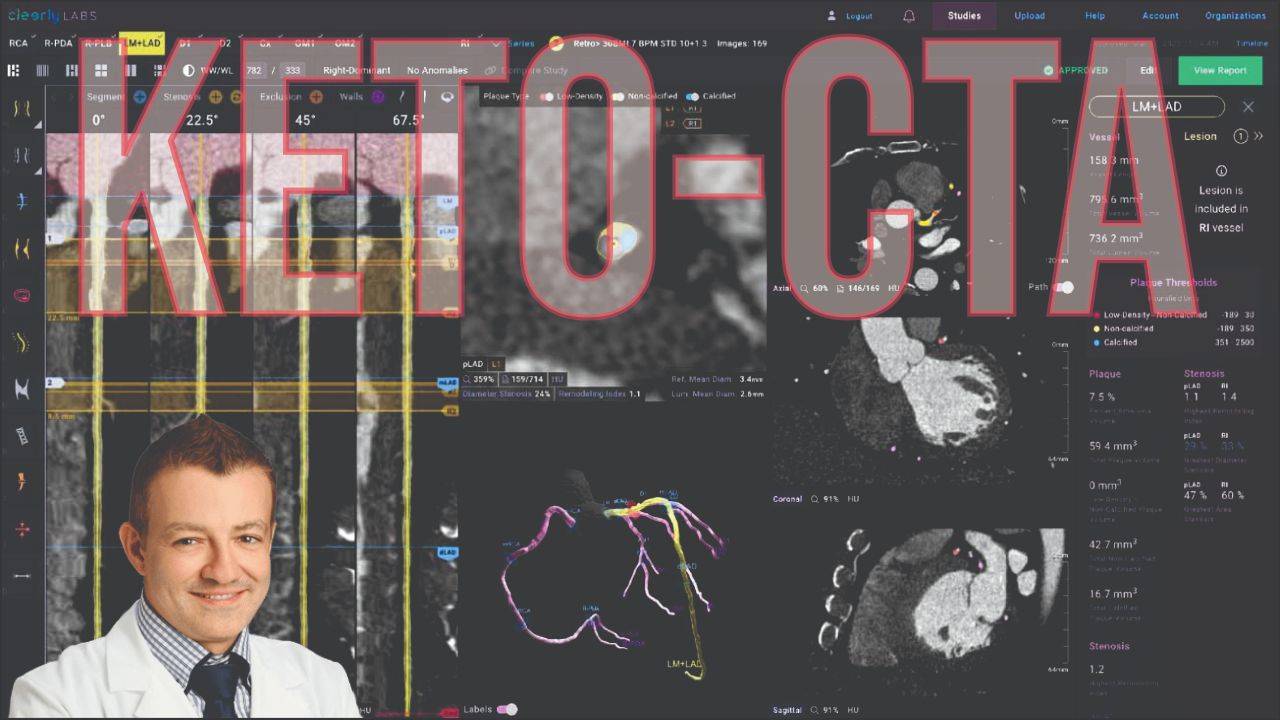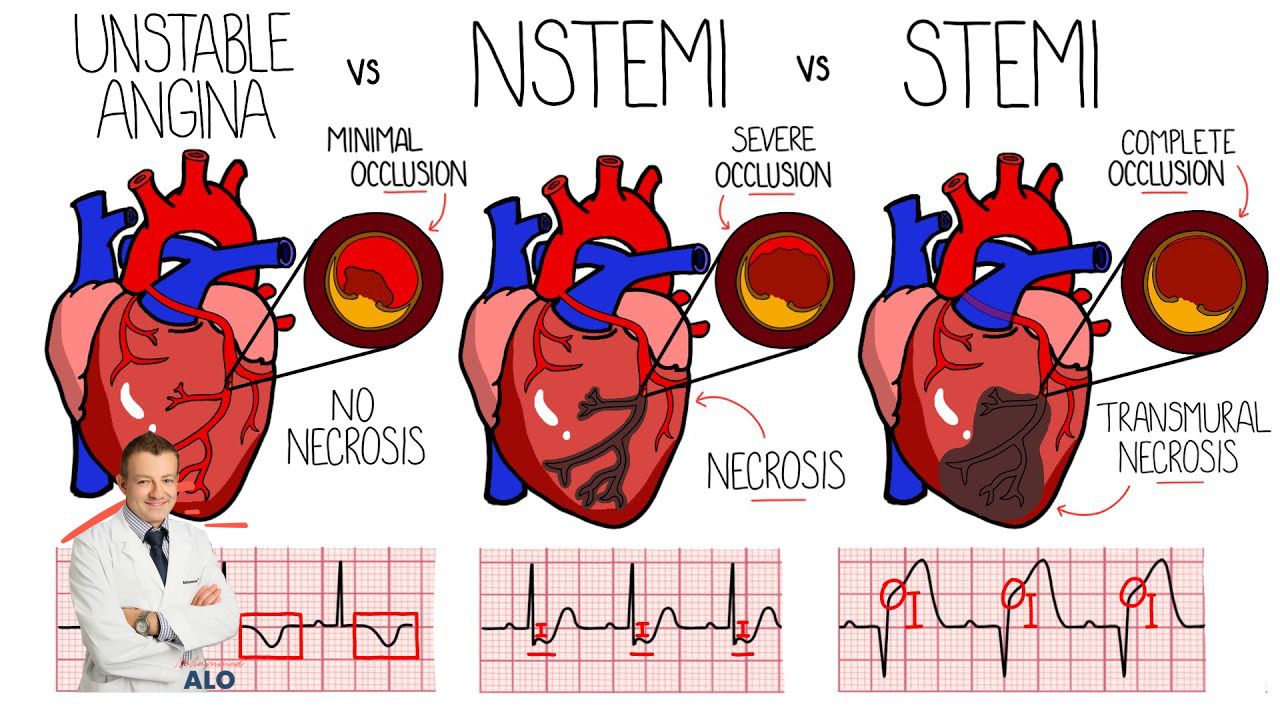Lipoprotein Little a
Jan 18, 2023
What is Lipoprotein Little a and What is Your Life Expectancy with High Lipoprotein a?
One of the most common topics and questions I get at medical conferences is, "Can you tell us more about lipoprotein little a?"
What is lipoprotein a and what can we do about it?
What is my life expectancy with lipoprotein a?
Lipoprotein little a, commonly known as Lp(a) or LPa. It is a type of lipoprotein that carries cholesterol and other fats through the bloodstream. Lp(a) is considered one of the most dangerous and potent risk factor for cardiovascular disease, stroke, aortic stenosis, peripheral artery disease, heart failure, and other related conditions.
Let's dive deep and discuss the structure, function, and medical significance of Lp(a), including its effects on health and how it can be managed and treated.
Structure of Lipoprotein Little a (LPa)

Lipoprotein(a) is composed of two primary components, the apoB-100 protein, and a glycoprotein called apolipoprotein(a). The apoB-100 protein is found in low-density lipoprotein (LDL), which is often referred to as "bad" cholesterol. The apoB-100 protein is found on all LDL particles and all other atherogenic particles, and hence it's a good marker for disease and atherogenicity. The higher the ApoB, the more atherosclerosis you are going to have.
Apolipoprotein(a) is similar in structure to plasminogen, a protein involved in blood clotting. Lp(a) is unique in that it contains a kringle domain, which is a type of protein domain found in many blood-clotting factors. See the diagram above.
The size of Lp(a) can vary, and there are several isoforms, which differ in the number of kringle domains present. The number of kringle domains appears to be an important determinant of Lp(a) function and may influence its potential to cause disease and atherogenicity.
Function of Lipoprotein(a)
The function of Lp(a) is not entirely clear, but it is thought to play a role in the regulation of blood clotting. Lp(a) has been shown to inhibit the breakdown of blood clots by binding to plasminogen, which prevents it from converting to plasmin, an enzyme that dissolves blood clots. This mechanism may be important in preventing excessive bleeding but may also contribute to the formation of blood clots and blockages in the arteries.

Above is a lipoprotein little a particle with the Kringle chain on the outside.
Medical Significance of Lipoprotein(a)
High levels of Lp(a) in the blood have been associated with an increased risk of cardiovascular disease, stroke, aortic valve disease, and other related conditions. Lp(a) appears to contribute to the development of atherosclerosis, a condition in which plaque builds up in the arteries, causing them to narrow and harden. This can lead to reduced blood flow to the heart, brain, and other organs, increasing the risk of heart attacks, strokes, aortic stenosis, peripheral artery disease, and other serious complications.
Look at the table below. Your chance of having a heart attack is 3-4 times higher. The chance of having aortic stenosis (tight aortic valve) is 3 times higher. The risk of coronary artery atherosclerosis is 5 times higher. The risk of atherosclerosis in any other arterial bed (carotid, iliac, femoral, strokes) are also 1-2 times higher. The risk of heart failure is 1.5 to 2 times higher.
Because LP(a) significantly increases the risk of these diseases, we must take this very seriously.

Studies on Lipoprotein a
Several studies have shown that individuals with high levels of Lp(a) are at an increased risk of developing cardiovascular disease, even when other risk factors are taken into account. For example, a study published in the New England Journal of Medicine found that individuals with Lp(a) levels in the top 20% of the population had a 70% increased risk of developing coronary heart disease compared to those in the bottom 20%.
Lp(a) has also been associated with an increased risk of stroke, particularly in individuals with a history of high blood pressure or smoking. A study published in the Journal of the American Medical Association found that individuals with high levels of Lp(a) were at a 2.5-fold increased risk of developing ischemic stroke compared to those with low levels.
Management and Treatment of Lipoprotein(a)
Currently, there are no specific treatments for high Lp(a) levels. Lifestyle modifications, such as a healthy diet and regular exercise, may help to lower Lp(a) levels, as well as other risk factors for cardiovascular disease. Some medications, such as niacin and estrogen, may also be effective in reducing Lp(a) levels, but their use in this context is still under investigation.
Unfortunately, niacin has only shown a very modest decrease and is very difficult to take due to severe side effects, liver toxicity, and it has been shown to make your HDL more atherogenic. Niacin has not reduced cardiovascular outcomes (heart attacks, strokes, death rates) in multiple major trials. (https://pubmed.ncbi.nlm.nih.gov/34134520/ , https://www.ncbi.nlm.nih.gov/pmc/articles/PMC6481429/ , https://pubmed.ncbi.nlm.nih.gov/22085343/, https://pubmed.ncbi.nlm.nih.gov/25014686/, https://www.sciencedirect.com/science/article/pii/S0735109722055942, )
While there is no specific treatment to lower Lp(a) levels, lifestyle modifications, such as a healthy diet, exercise, and weight loss, may help to lower overall cardiovascular risk. In addition, there are medications available that can help lower Lp(a) levels, including statins, ezetimibe, and PCSK9 inhibitors.
Statins, such as Crestor (rosuvastatin), have been shown to modestly reduce Lp(a) levels, but in other studies, has actually shown to increase Lp(a) by 10%, but still reduced CVD by 28%. In a study published in the Journal of Clinical Lipidology, treatment with rosuvastatin was associated with a 20% reduction in Lp(a) levels over 12 weeks in individuals with high Lp(a) levels (1). However, the magnitude of the reduction varied widely among individuals. https://www.ncbi.nlm.nih.gov/pmc/articles/PMC8436116/ , https://www.ncbi.nlm.nih.gov/pmc/articles/PMC3946056/
Ezetimibe (Zetia) is another medication that has been shown to modestly lower Lp(a) levels. In a study published in the Journal of Lipid Research, treatment with ezetimibe was associated with a 9% reduction in Lp(a) levels over 12 weeks in individuals with high Lp(a) levels (2). https://jamanetwork.com/journals/jama/fullarticle/184063
PCSK9 inhibitors, such as Repatha (evolocumab), are a newer class of medications that have been shown to significantly lower Lp(a) levels. In a study published in the New England Journal of Medicine, treatment with evolocumab was associated with a 27% reduction in Lp(a) levels over 12 weeks in individuals with high Lp(a) levels (3). https://www.nejm.org/doi/full/10.1056/nejmoa1615664
There are newer medications that are in phase 3 trials that show a lot of promise in lowering LP(a). One such medication is hepatocyte-directed antisense oligonucleotide AKCEA-APO(a)-LRx, referred to here as APO(a)-LRx that showed up to an 80% reduction in LP(a). (https://www.nejm.org/doi/full/10.1056/NEJMoa1905239)
It is important to note that while these medications may help to lower Lp(a) levels, their overall impact on cardiovascular risk reduction is still being studied. Individuals with high Lp(a) levels should work with their healthcare providers to determine the best treatment options for managing their overall cardiovascular risk.
Lipoprotein Little a Conclusion
Lipoprotein(a) is a unique lipoprotein that carries cholesterol and other fats through the bloodstream. It appears to play a role in the regulation of blood clotting, but high levels of Lp(a) in the blood have been associated with an increased risk of cardiovascular disease, stroke, and other related conditions. While there are no specific current treatments for high Lp(a) levels, lifestyle modifications and certain medications may help to lower levels and reduce overall risk for related conditions.
There are a few medications in phase III trial that look very promising causing up to an 80% reduction in Lp(a) levels,
Further research is needed to better understand the role of Lp(a) in disease development and to develop more targeted treatments. In the meantime, individuals with high Lp(a) levels should work with their healthcare providers to manage their overall risk for cardiovascular disease and related conditions.
You can also look up some of these phase III trials and see if you can get into a trial to get your numbers down.
Further Reading on Lipoprotein a:
https://www.acc.org/latest-in-cardiology/articles/2019/07/02/08/05/lipoproteina-in-clinical-practice
https://www.ahajournals.org/doi/10.1161/ATV.0000000000000147
Citations:
- Nordestgaard BG, Chapman MJ, Ray K, et al. Lipoprotein(a) as a cardiovascular risk factor: current status. Eur Heart J. 2010;31(23):2844-2853. doi:10.1093/eurheartj/ehq386
- Kamstrup PR, Tybjaerg-Hansen A, Steffensen R, et al. Genetically elevated lipoprotein(a) and increased risk of myocardial infarction. JAMA. 2009;301(22):2331-2339. doi:10.1001/jama.2009.801
- Langsted A, Kamstrup PR, Benn M, Tybjaerg-Hansen A, Nordestgaard BG. High lipoprotein(a) as a possible cause of clinical familial hypercholesterolaemia: a prospective cohort study. Lancet Diabetes Endocrinol. 2016;4(7):577-587. doi:10.1016/S2213-8587(16)30081-4
- Tsimikas S, Hall JL. Lipoprotein(a) as a potential causal genetic risk factor of cardiovascular disease: a rationale for increased efforts to understand its pathophysiology and develop targeted therapies. J Am Coll Cardiol. 2012;60(8):716-721. doi:10.1016/j.jacc.2012.01.074
- Tsimikas S, Viney NJ, Hughes SG, et al. Antisense therapy targeting apolipoprotein(a): a randomised, double-blind, placebo-controlled phase 1 study. Lancet. 2015;386(10002):1472-1483. doi:10.1016/S0140-6736(15)61252-1
- Kamstrup PR, Tybjaerg-Hansen A, Steffensen R, Nordestgaard BG. Genetically elevated lipoprotein(a) and increased risk of myocardial infarction. JAMA. 2009;301(22):2331-2339. doi:10.1001/jama.2009.801
- Viney NJ, van Capelleveen JC, Geary RS, et al. Antisense oligonucleotides targeting apolipoprotein(a) in people with raised lipoprotein(a): two randomised, double-blind, placebo-controlled, dose-ranging trials. Lancet. 2016;388(10057):2239-2253. doi:10.1016/S0140-6736(16)31009-1
- https://www.ahajournals.org/doi/10.1161/ATV.0000000000000147
- https://www.acc.org/latest-in-cardiology/articles/2019/07/02/08/05/lipoproteina-in-clinical-practice
Grab my Actual Weight Loss book for more leading edge weight loss and heart health advice!
Grab my Mediterranean Diet Calorie Based Weight Loss Cookbook!
Join my Heart Healthy Community to discuss personalized health advice.
This blog post is adapted from my Cholesterol Book. Click here to sign up to be the first to know when it will be released and to be a part of the launch teach and get exclusive access to additional charts, graphics, audiobooks, and bonus chapters! https://dralo.net/cholesterol
Power of 3 Bundle
Grab My 5 Step Quick Guide for Weight Loss & My Ultimate Macro Counting Guide & My Ultimate Lipid Guide for FREE! Normally a $197 Bundle!
Everything you need to live a healthy life, live longer, and lose weight properly!
Most of my clients, friends, and patients lost all the weight they ever wanted with this bundle!
I hate SPAM. I will never sell your information, for any reason.















